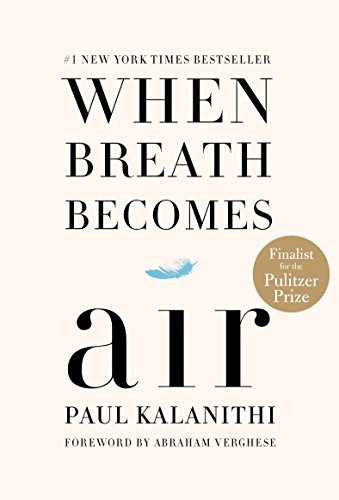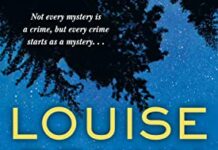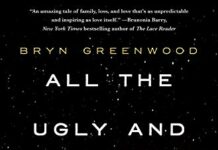
Ebook Info
- Published: 2016
- Number of pages: 228 pages
- Format: Epub
- File Size: 0.34 MB
- Authors: Paul Kalanithi
Description
At the age of thirty-six, on the verge of completing a decade’s worth of training as a neurosurgeon, Paul Kalanithi was diagnosed with stage IV lung cancer. One day he was a doctor treating the dying, and the next he was a patient struggling to live. And just like that, the future he and his wife had imagined evaporated. When Breath Becomes Air chronicles Kalanithi’s transformation from a naïve medical student “possessed,” as he wrote, “by the question of what, given that all organisms die, makes a virtuous and meaningful life” into a neurosurgeon at Stanford working in the brain, the most critical place for human identity, and finally into a patient and new father confronting his own mortality.
What makes life worth living in the face of death? What do you do when the future, no longer a ladder toward your goals in life, flattens out into a perpetual present? What does it mean to have a child, to nurture a new life as another fades away? These are some of the questions Kalanithi wrestles with in this profoundly moving, exquisitely observed memoir.
Paul Kalanithi died in March 2015, while working on this book, yet his words live on as a guide and a gift to us all. “I began to realize that coming face to face with my own mortality, in a sense, had changed nothing and everything,” he wrote. “Seven words from Samuel Beckett began to repeat in my head: ‘I can’t go on. I’ll go on.’” When Breath Becomes Air is an unforgettable, life-affirming reflection on the challenge of facing death and on the relationship between doctor and patient, from a brilliant writer who became both.
User’s Reviews
Amazon.com Review An Amazon Best Book of January 2016: When Breath Becomes Air is a powerful look at a stage IV lung cancer diagnosis through the eyes of a neurosurgeon. When Paul Kalanithi is given his diagnosis he is forced to see this disease, and the process of being sick, as a patient rather than a doctor–the result of his experience is not just a look at what living is and how it works from a scientific perspective, but the ins and outs of what makes life matter. This heart-wrenching book will capture you from page one and still have you thinking long after the final sentence. –Penny Mann Review “I guarantee that finishing this book and then forgetting about it is simply not an option. . . . Part of this book’s tremendous impact comes from the obvious fact that its author was such a brilliant polymath. And part comes from the way he conveys what happened to him—passionately working and striving, deferring gratification, waiting to live, learning to die—so well. None of it is maudlin. Nothing is exaggerated. As he wrote to a friend: ‘It’s just tragic enough and just imaginable enough.’ And just important enough to be unmissable.”—Janet Maslin, The New York Times “Paul Kalanithi’s memoir, When Breath Becomes Air, written as he faced a terminal cancer diagnosis, is inherently sad. But it’s an emotional investment well worth making: a moving and thoughtful memoir of family, medicine and literature. It is, despite its grim undertone, accidentally inspiring.”—The Washington Post “Paul Kalanithi’s posthumous memoir, When Breath Becomes Air, possesses the gravity and wisdom of an ancient Greek tragedy. . . . [Kalanithi] delivers his chronicle in austere, beautiful prose. The book brims with insightful reflections on mortality that are especially poignant coming from a trained physician familiar with what lies ahead. . . . The narrative voice is so assured and powerful that you almost expect him to survive his own death and carry on describing what happened to his friends and family after he is gone.”—The Boston Globe “Devastating and spectacular . . . [Kalanithi] is so likeable, so relatable, and so humble, that you become immersed in his world and forget where it’s all heading.”—USA Today “It’s [Kalanithi’s] unsentimental approach that makes When Breath Becomes Air so original—and so devastating. . . . Its only fault is that the book, like his life, ends much too early.”—Entertainment Weekly“[When Breath Becomes Air] split my head open with its beauty.”—Cheryl Strayed“Rattling, heartbreaking, and ultimately beautiful, the too-young Dr. Kalanithi’s memoir is proof that the dying are the ones who have the most to teach us about life.”—Atul Gawande“Thanks to When Breath Becomes Air, those of us who never met Paul Kalanithi will both mourn his death and benefit from his life. This is one of a handful of books I consider to be a universal donor—I would recommend it to anyone, everyone.”—Ann Patchett “Dr. Kalanithi describes, clearly and simply, and entirely without self-pity, his journey from innocent medical student to professionally detached and all-powerful neurosurgeon to helpless patient, dying from cancer. Every doctor should read this book—written by a member of our own tribe, it helps us understand and overcome the barriers we all erect between ourselves and our patients as soon as we are out of medical school.”—Henry Marsh, author of Do No Harm: Stories of Life, Death, and Brain Surgery
Reviews from Amazon users, collected at the time the book is getting published on UniedVRG. It can be related to shiping or paper quality instead of the book content:
⭐ When Breath Becomes Air (2016) made a huge splash, becoming a NYT bestseller, etc. Even Bill Gates read (and reviewed, and loved) it. In it, Dr. Paul Kalanithi basically tells his life’s story in two main threads: how he came to choose, learn, and practice medicine, and how he’s fighting late-stage lung cancer in only his mid-30s. The situation has (had…) all the makings of a kind of hero’s journey, and no wonder it grabbed people’s attention. A superstar young doctor dying of lung cancer right after bringing home a new baby, imagine that.But as far as I can tell, the Paul Kalanthi described in the book would want me to write an honest critique of his work, and I can’t be 100% positive. I have no problem with the lofty philosophical bits, but many other prospective readers will. Kalanithi seems to think that his decision to study medicine is deeply interesting (he studied literature first, and first bristled at the thought since there were doctors in the family). But I didn’t care so much – who among us hasn’t changed their college major or master’s program once or thrice? Depending on your existing worldview, you’ll either find Kalanithi’s ultimate choice of neurosurgery as either inspired or eye-rollingly hubristic.Kalanthi is interested in the mind-body problem, and I know that he would have studied it specifically. But, disappointingly, he can’t muster much more to say about it than platitudinous rhetorical questions (“There must be a way, I thought, that the language of life as experienced – of passion, of hunger, of love – bore some relationship, however convoluted, to the language of neurons, digestive tracts, and heartbeats.”)For someone who decided (years ago, as a student) that “human relationality” “undergirds meaning,” it’s a little rich that Kalanithi had become estranged from his wife prior to his diagnosis and then barely mentions her pregnancy in passing. I do believe it’s noble that Kalanithi tried to relate to his patients on a human level, especially seeing as how he operates on what he takes to be the seat of their souls. But readers are just as likely to feel alienated by Kalanithi’s focus on strangers to the detriment of those close by. It’s like an overdone character in a book: doctor too busy caring for patients to care for his own wife, oops! The very last paragraphs Paul wrote are about his infant daughter Cady, and the joy she brought him as he died. But that’s why those bits seem a little surprising. Perhaps, due to Kalanithi’s increasing frailty, the part of the journey that turned him from arrogant doctor into sated family man simply went mostly unwritten.To be clear, producing a single book that encapsulates everything someone with a full professional and personal life might want to say is a totally Herculean task (especially to undertake while already critically/terminally ill). It’s certainly no surprise that When Breath Becomes Air isn’t completely satisfactory in that regard. You don’t have to be a perfect person to write a good book, either. But since this is a book review…The highlight reel of Kalanithi’s life doesn’t make you feel especially connected to him, but you feel obligated to preemptively develop some empathy because you know what’s coming next. His experiences training as a doctor are sort of depressing and cliched: start ambitious, end desensitized. His experiences as a student shouldn’t have to be that significant. But because his life is turning out to be rather short and he was a student for most of it, they become forced into significance. I don’t know exactly what I’d want anyone, dying or not, to say about “human relationality” vis a vis meaning in life (personally, I don’t think there’s any such meaning to be had, but the question comes up often enough that there has to be something to say).Throughout, Kalanithi’s writing is alternately beautiful and cringe-worthily heavy-handed (“in taking up another’s cross, one must sometimes get crushed by the weight”). It’s clear that he’s trying to find a comfortable writing voice (while also grappling with the weightiest possible subject matter), and under such pressure. What a shame that he got only an ill-fated Titanic crack at writing a book. If this material had spanned a few decades instead, who knows how it could have come out.I did especially enjoy (???) the section on glioblastoma, from a neurosurgeon’s point of view. It helped me to more fully envision the events that unfolded around my family member’s recent diagnosis. The epilogue, by Paul’s widow Lucy Kalanithi, is quite beautiful (a number of Amazon reviewers like it better than the rest of the book). It helps to drive home that Paul is gone, his life’s previous work (doctoring), new work (writing), and would-have-been-future-work (parenting) all left unfinished. She too must find her voice for this task under immense pressure, kudos for that. I have only begun to dip a toe into the mental fog of grief and it’s enough to make you forget how to brush your teeth, let alone how to write something huge numbers of strangers would want to read.All of the above notwithstanding, I read the book very quickly and definitely cried at the end.Read this book if you’re interested in how a doctor thinks about his own death and if you don’t mind stories without silver linings.Don’t read this book if you’re very put off by arrogance or intellectualism.
⭐ As a cancer survivor I expected to love this book, I did not. It was beautifully written and very in depth but I just felt no emotional connection to the writer at all, and I am not sure why. Maybe it was just too technical for my uneducated brain. What I got from him and my own experience is that you should never give up, believe you will get well always. Sadly he did not get well and that is tragic, but his life was not a tradgedy, it was full of hope, and while going through chemo treatments hope was everything to me!!
⭐ I read this book in one sitting, long after the lights should have been turned off. I felt like not doing so would have been a disservice to Paul Kalanithi. After reading the book I felt stunned and hopeful in equal parts. Stunned because of the realization that someone as prodigiously talented and eloquent as Dr. Kalanithi was taken from the world at such an early age. Hopeful because even in his brief life of thirty-seven years he showcased what we as human beings are capable of in our best incarnations. His family can rest assured that he will live on through his book.When Breath Becomes Air details Dr. Kalanithi’s life as a neurosurgeon and his fight against advanced lung cancer. Even in his short life he achieved noteworthy recognition as a scholar, a surgeon, a scientist and now – posthumously – as a writer. The book is a tale of tribulations and frank reflections. Ultimately there’s not much triumph in it in the traditional sense but there is a dogged, quiet resilience and a frank earthiness that endures long after the last word appears. The tribulations occur in both Dr. Kalanithi’s stellar career and his refusal to give in to the illness which ultimately consumed him.The first part of the book could almost stand separately as an outstanding account of the coming of age of a neurosurgeon and writer. Dr. Kalanithi talks about his upbringing as the child of hardworking Indian immigrant parents and his tenacious and passionate espousal of medicine and literature. He speaks lovingly of his relationship with his remarkable wife – also a doctor – who he met in medical school and who played an outsized role in supporting him through everything he went through. He had a stunning and multifaceted career, studying biology and literature at Stanford, then history and philosophy of medicine at Cambridge, and finally neurosurgery at Yale.Along the way he became not just a neurosurgeon who worked grueling hours and tried to glimpse the very soul of his discipline, but also an eloquent writer. The mark of a man of letters is evident everywhere in the book, and quotes from Eliot, Beckett, Pope and Shakespeare make frequent appearances. Accounts of how Dr. Kalanithi wrested with walking the line between objective medicine and compassionate humanity when it came to treating his patients give us an inside view of medicine as practiced at its most intimate level. Metaphors abound and the prose often soars: When describing how important it is to develop good surgical technique, he tells us that “Technical excellence was a moral requirement”; meanwhile, the overwhelming stress of late night shifts, hundred hour weeks and patients with acute trauma made him occasionally feel like he was “trapped in an endless jungle summer, wet with sweat, the rain of tears of the dying pouring down”. This is writing that comes not from the brain or from the heart, but from the gut. When we lost Dr. Kalanithi we lost not only a great doctor but a great writer spun from the same cloth as Oliver Sacks and Atul Gawande.It is in the second part of the book that the devastating tide of disease and death creeps in, even as Dr. Kalanithi is suddenly transformed from a doctor into a patient. It must be slightly bizarre to be on the other side of the mirror and intimately know everything that is happening to your body and Dr. Kalanithi is brutally frank in communicating his disbelief, his tears, his hope and his understanding of his fatal disease. It’s worth noting that this candid recognition permeates the entire account. Science mingles with emotion as compassionate doctors, family and a battery of medications and tests become a mainstay of life. The painful uncertainty which he documents – in particular the tyranny of statistics which makes it impossible to predict how a specific individual will react to cancer therapy – must sadly be familiar to anyone who has had experience with the disease. As he says, “One has a very different relationship with statistics when one becomes one”. There are heartbreaking descriptions of how at one point the cancer seemed to have almost disappeared and how, after Dr. Kalanithi had again cautiously made plans for a hopeful future with his wife, it returned with a vengeance and he had to finally stop working. There is no bravado in the story; as he says, the tumor was what it was and you simply experienced the feelings it brought to your mind and heart.What makes the book so valuable is this ready admission of what terminal disease feels like, especially an admission that is nonetheless infused with wise acceptance, hope and a tenacious desire to live, work and love normally. In spite of the diagnosis Dr. Kalanithi tries very hard – and succeeds admirably – to live a normal life. He returns to his surgery, he spends time with his family and most importantly, he decides to have a child with his wife. In his everyday struggles is seen a chronicle of the struggles that we will all face in some regard, and which thousands of people face on a daily basis. His constant partner in this struggle is his exemplary wife Lucy, whose epilogue is almost as eloquent as his own writing; I really hope that she picks up the baton where he left off.As Lucy tells us in the epilogue, this is not some simple tale of a man who somehow “beats” a disease by refusing to give up. It’s certainly that, but it’s much more because it’s a very human tale of failure and fear, of uncertainty and despair, of cynicism and anger. And yes, it is also a tale of scientific understanding, of battling a disease even in the face of uncertainty, of poetry and philosophy, of love and family, and of bequeathing a legacy to a two year old daughter who will soon understand the kind of man her father was and the heritage he left behind. It’s as good a testament to Dr. Kalanithi’s favorite Beckett quote as anything I can think of: “I can’t go on. I will go on”.Read this book; it’s devastating and heartbreaking, inspiring and edifying. Most importantly, it’s real.
⭐ At the age of thirty-six, Paul Kalanithi is diagnosed with stage IV lung cancer. “When Breath Becomes Air” is his unfinished memoir. From an early age, Paul became interested and searched for what makes life meaningful. This book walks us through some of the profound moments of Paul’s life, what he saw and how he felt, and how these events impacted and shaped his life.It was Paul’s love of literature, and his interest in biological philosophy that would one day lead him to become a neurosurgeon. Books and words connect people and it’s this connection – relationships – that make life meaningful. The process of experiencing life occurs in the brain, but sometimes the brain is broken or isn’t working properly. Paul wanted to help people, and to understand for himself, just what makes life worth living.The beautifully written epilogue, which was written by his wife Lucy, will break your heart, and give you hope at the same time. Here are a couple of quotes from this section.”… [W]e knew that one trick to managing a terminal illness is to be deeply in love-to be vulnerable, kind, generous, grateful.””I expected to feel only empty and heartbroken after Paul died. It never occurred to me that you could love someone the same way after he was gone, that I would continue to feel such love and gratitude alongside the terrible sorrow, the grief so heavy that at times I shiver and moan under the weight of it.”This was a beautiful story that made me cry, it made me think, it made me appreciate life, and I will never be the same because I read it.
⭐ Dr. Kübler-Ross defined five stages of grief – denial, anger, bargaining, depression, and acceptance. It was a compassionate system intended to help patients and their families process a terminal diagnosis. I would add regret to that list. Regret for the life you wanted, but will not have. Regret for the people you will not know and love, the places you will not go, and things you will not accomplish. Many of us don’t have to be in the process of dying in order to feel that level of grief. The urgency of now is more acute, however, with a death sentence looming on your scorecard.Author Paul Kalanithi is a young man of 36 years when he is diagnosed with late-stage lung cancer. He had spent almost his entire life studying – first obtaining degrees in English Literature and Human Biology, then earning master degrees in both English and Philosophy, before finally deciding on medical school. His illness interrupts a life right on the cusp of realizing his hard-earned ambition to become a neurosurgeon. He channels his profound grief – and regret – into action, capturing his hopes, dreams, and aspirations into this book.Kalanithi’s writing reminds me of British surgeon Henry Marsh, who wrote so eloquently about the intersection of life and medicine in his latest book, “ Admissions .” Like Kalanithi, Marsh’s studies were on a more humanistic path before he decided on the scientific one of neurosurgery. Like Marsh, Kalanithi’s brings lyrical discipline to the story of his life. He offers his observations on life, relationships, family, career, his illness and pending death, in an achingly poetic way. He completes his circle of life in the writing of this book. I wept when I finished his story.Jacqueline Onassis is credited with saying that you haven’t lived until you’ve written a book. In writing his, Dr. Paul Kalanithi lives forever.
⭐ This book is essentially the final ego stroke of a dying man. That might sound harsh, but it reads like a self-aggrandizing epitaph of a man with very little insight to offer. I especially found the “I’m an important doctor, why me?!” tone of the memoir tiring. The epilogue was the best part of the book and it was written by the author’s wife. At the end of the day I feel like this book has value for the author’s daughter, who will learn about her father through his own immortalized words, but as far as its value for the rest of us… nah. Skip it and read Viktor Frankl’s “Man’s Search for Meaning” instead.
⭐ The simple fact is that the experience of the author in the latter part of the book – the one concerned with his decline – could be anyone’s experience. I expected his medical degree to add another layer to his writing, but where it concerns his experience of dying, he says nothing I would not expect to hear from any other terminal patient. Chalk it up to a lack of time on Kalanithi’s part or speculate about how similar a thing it is when we die. But if you have a relative or friend who has died of cancer, the author will not say anything they did not.And when Kalanithi does concern himself with being a doctor, it is uncomfortably self-servicing. His description of his journey through medical school is fraught with situations in which the author paints himself as praised by all, smarter than most, and all around Good Doctor Man. Which is not to say that he was not these things – merely that when you have a large number of such instances in your book, alongside continual namedropping of Ivy League Schools and including a reading list of great intellectuals, it comes off as shamelessly self-absorbed and intent on impressing. Those hints of ivory tower snobbery, of old New Yorker essays and long talks over expensive scotch with the creme de la creme of medicine, sour a great portion of this narrative.I appreciate that Kalanithi was not finished with his manucript, and do not want to disparage his efforts to leave a good thing behind. That is commendable. But as literature, this book is of poor quality. If you want to read a narrative of death and dying with power, hope, sorrow, and unifying perspective (Kalanithi’s wife even comments that his narrative was isolating) check out Being Mortal by Atul Gawande instead. Compare the two.
⭐ I heard this book on Audio Books.The narrative was outstanding especially the epilogue of his wife Lucy.I was very tempted to give the work 5 stars more if possible.However,I did not let my first impressions take over.After considerable time and reflections I started to ask myself various questions.Cancer is very mysterious,but still why will a healthy,well bred individual get terminal lung cancer at the age of 37.Under these conditions is the best approach to fight against terrible odds or enjoys the few good months that are left.Also having a child knowing that it is highly likely that someone else will have the responsiblty of taking care of the correct decision. Dr. Kalanithi obviously did not know much about nutrition—having lunches of diet coke and ice cream sandwiches—does not seem very healthy.Also,subjecting Drs to a tense grueling work before cretifications seems unfair.Finally having a child can wait until the situation become clear.Maybe we should accept these decisions because of eternal optimisim of youth.Anyway my comments might prove unpopular,i thought,nonetheless,worthwhile to present them.My best to all.
⭐ When Breath Becomes Air is the story of Paul Kalanithi, a doctor on the verge of finishing his neurosurgeon training, who is diagnosed with stage IV lung cancer. For me, the book read like a three-strand braid. The first strand was a biography of Paul starting when he was a teenager trying to discover his calling and concluding with his death. The second strand was Paul’s reflections on being a doctor and the doctor-patient relationship. The third was his philosophical quest for an understanding of what makes life meaningful and an accounting of human meaning in connection with the brain.I enjoyed his accounting of life as a medical student and doctor in training the most. His perspective on being a doctor and his efforts to ensure that patients were viewed as people, not problems on a to-do list, were particularly revealing and insightful to me. I found his shift from being the doctor to being the patient to be profound and impactful. As one who is also suffering an illness (thankfully not as severe as Paul’s), I connected with his thoughts on and confusion about time and the future.Through his biographical strand, I came to know Paul and mourned his death with tears of my own. Reading about his courage and dignity in the face of his own mortality was admirable. Paul’s attitude and approach to death were refreshing. His wife Lucy summarized this well in the Epilogue by stating, “Paul’s decision not to avert his eyes from death epitomizes a fortitude we don’t celebrate enough in our death-avoidant culture.”It was his philosophical quest that I struggled with the most. He described his search for meaning based upon his reading, education, learning, training, and life. His understanding evolved with each new experience and I felt that he wrote his reflections in this same evolutionary manner. Not having had the same experiences as him, I found his revelations vague, unconnected, and lacking in clarity. I understand that Paul wrote this book under extreme time pressure and against extraordinary circumstances. I also understand that it is, in essence, an unfinished manuscript, however, this aspect of the story felt tedious and left me a bit bored.I am not sure if and to whom I would recommend this book. I would not give it as an “off-the cuff” recommendation to everyone. Instead, it would be a discussion with someone on how they heard of it, why they wanted to read it, and what they hoped to gain from it that would guide my recommendation or not.
⭐ This is a moving memoir written by a 36 year old neurosurgeon while he was dying of state IV lung cancer. It was reminiscent of The Last Lecture by Randy Pausch. It is a slim volume, filled out by a lengthy forward and completed by an afterward written by his widow after his death, where she confesses that her husband was not able to complete the manuscript he was struggling to write while dealing with extreme pain and fatigue. Dr. Kalanithi fills in his early years and family background very lightly, concentrating more on his medical training, and then on his illness. He writes candidly about the marital problems caused by the strain of his residency, and how they evaporated once he was diagnosed with a terminal illness. Although disappointed that he would not live to enjoy a career as an academic neuroscientist/neurosurgeon for which he had spent his whole adult life preparing, he was sustained by the love of his wife, family, friends and colleagues, his religious faith, and his delight in his baby daughter. He also discusses his difficulty deciding whether to leave his training and patient responsibilities once he becomes ill, and how much of a role that he, as a brilliant physician, should take in guiding his own medical care. He also seeks to find meaning in his impending death and to impart this to his readers.
Keywords
Free Download When Breath Becomes Air in Epub format
When Breath Becomes Air Epub Free Download
Download When Breath Becomes Air 2016 Epub Free
When Breath Becomes Air 2016 Epub Free Download
Download When Breath Becomes Air Epub
Free Download Ebook When Breath Becomes Air





